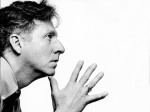David Lehman found poetry in the beat of his radio, thrumming to its rhythm for 57 days.
In his latest book, “Playlist,” Lehman wrote one poem a day from Nov. 20 to Jan. 15 before compiling the collection into a single poem. The format echoes his previous publications, such as “The Daily Mirror,” a collection of daily poems. But unlike his previous work, “Playlist” is inspired by songs Lehman heard on satellite radio stations – an eclectic mix of 1940s music, jazz and classical. He said he used the playlist to reflect upon the ordinary instances that percolate everyday life, such as spouse interactions and driving. In highlighting the new release, Lehman will read selections from “Playlist” at the Hammer Museum on Thursday.
“‘Playlist’ is more in the mode of ‘The Daily Mirror’ in that it tries to convey a sense of life as you’re living it,” Lehman said. “It’s down more to the cup of coffee with which you start the day, and the way your thoughts proceed from it.”
[RELATED: Professor creates organization encouraging students of all majors to explore poetry]
Beginning his poetry journey as a first-year undergraduate student at Columbia University, Lehman said he began to habitually write poetry as he indulged in mid-September weather, later discovering influential poets like Frank O’Hara at the local library and his professor, Kenneth Koch, in class. Both poets, as well as Lehman later on, were members of the New York School, an experimental movement of artists and poets dating back to the 1940s, said Stephen Yenser, a distinguished professor emeritus of English at UCLA. Lehman said he occasionally draws on these early influences in his writing process, challenging himself to write a poem about a missing figure or complete an unfinished work by Emily Dickinson.
“(Lehman) is variously useful, and I’ve compared him to a Swiss Army knife in that he has experimented with many different branches of literature that all inform the content of his poetry,” Yenser said.
When crafting the sections for “Playlist,” Lehman said he had to find words that would best suit the description of music, which itself is a form of communication that doesn’t use words. He said he would try to convey the major impact of a certain song by borrowing musical language like a chord progression or opening. When finding lines that fit the music appropriately, Lehman said he would incorporate extra twists into seemingly intelligible verses to make the reader think twice about the latent meaning. For example, he wrote a technical analysis about tenor saxophonist John Coltrane and for another section inserted biographical details about composer Franz Schubert. Brian Kim Stefans, an English professor at UCLA, said Lehman’s poetry at times utilizes these details in favor of larger flights of fancy.
“(Lehman’s) playing with the idea that poetry can actually have no depth whatsoever, resulting in more of a chatty tone,” Stefans said.
In one section of “Playlist,” Lehman drives through Ithaca, New York, which has numerous bridges spanning the city’s gorges, and reflects upon the death of his friend and fellow poet A. R. Ammons. On the radio, Dean Martin’s “Under the Bridges of Paris” began to play, Lehman said, followed by another song with an enjoyable bridge – a musical term for the middle part of a song that connects the primary chorus. He said he used the experience to reflect on the convergence of these events, tying it to the play on words of “bridge,” a concept that most, typically, do not give a second thought. Lehman said he wanted to draw attention to the peculiarities present in the commonplace.
“I thought that it was poetic that you can drive across bridges while writing about the bridge of a song and ending with a song that actually has that word in the title,” Lehman said. “It seemed like an inspiring conjunction of phenomena.”
[RELATED: Poet Susan Wheeler comes to UCLA to read, discuss her experimental works]
When reading excerpts from “Playlist” at the Hammer, Lehman said he will take a quieter approach that will serve the poem without distracting from it with performative antics, like animatedly acting the poem out. He said he wants to highlight the subtleties of sections such as the one based on bridges. He said he will read the poem by conveying emphasis on certain words, revealing the poetic beauty that can be found in the most ordinary of moments.
“I want to encapsulate the idea of everyday life without entertaining the great questions like, ‘What do I believe in, life after death, will things always be terrible as far as human suffering and cruelty?’ Those are important questions to write about, and I do, but sometimes it’s just as well not to think about the news,” Lehman said. “‘Playlist’ is like the news channel has been turned off and the poetry channel has been turned on.”
